Considered as the second brain, the intestines contribute to the assimilation of carbohydrates, proteins, and fats. They play a role in immunity and the production of certain hormones.
And although essential, they are sometimes neglected. Unbalanced diet, festive meals, smoking, alcohol consumption, poor sleep, sedentary lifestyle, or chronic stress affect the proper functioning of the digestive tract.
Waste and toxins accumulate, and it’s not uncommon to experience discomfort, bloating, flatulence, constipation, or diarrhea. Often, they are synonymous with poor digestion and an imbalance in the microbiota.
Cleansing the intestines is not just about causing a laxative effect to eliminate accumulated waste. It’s also about restoring or maintaining a balanced microbiota.
Some traditional remedies, like the consumption of apple cider vinegar, are often mentioned. However, there is no scientific evidence highlighting its benefits. Therefore, I present to you my 7 tips for naturally cleansing the intestine.
📚 Read also | The 5 best probiotics selected by a pharmacist
1. Good hydration
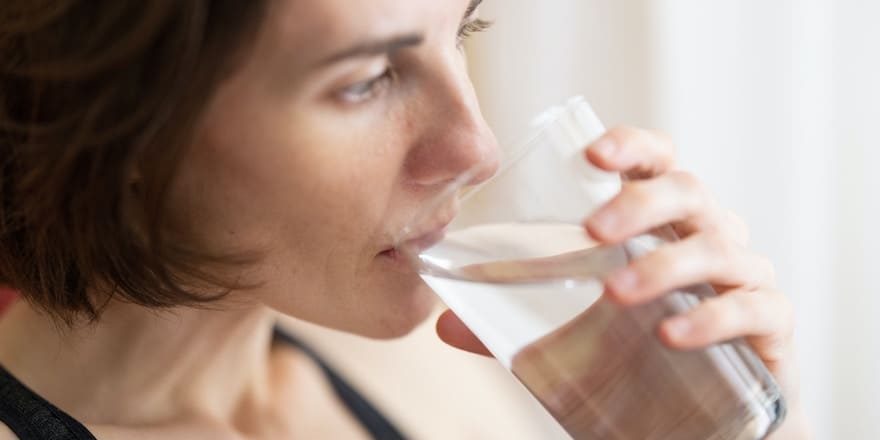
A good daily water intake supports intestinal health. Drinking enough water throughout the day facilitates the lubrication of the intestinal mucosa and positively regulates transit.
Water helps in the breakdown and assimilation of nutrients during digestion, and hydrates the stools.
Constipation, hard stools, or dark urine can be a sign of mild dehydration.
Remember to drink at least 1.5 L of water per day. I also invite you to consume fruits and vegetables to properly hydrate and more easily eliminate intestinal waste.
2. A fiber-rich diet
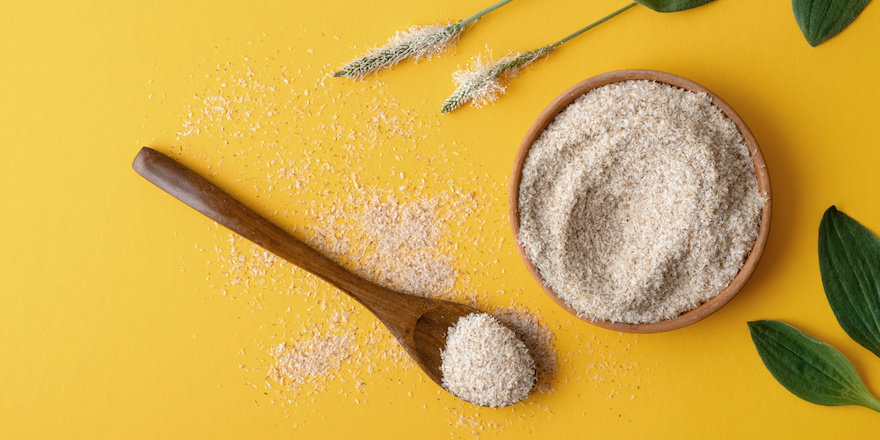
Dietary fibers are great allies for intestinal health, acting on both transit and the balance of flora.
They are part of the large family of carbohydrates, and we distinguish two types.
Soluble fibers
Digested in the small intestine or colon, these fibers attract water and form a viscous gel. Their ability to slow gastric emptying can, however, increase constipation in sensitive individuals.
Among them are prebiotic soluble fibers. Often of fructo-oligosaccharide (FOS) structures, they feed the microorganisms of the intestinal microbiota and contribute to its good balance.
Soluble fibers are found in fruits and vegetables, oats, barley, and psyllium.
📚 Read also | Where to find the best psyllium?
Insoluble fibers
Not digested by the intestines, they remain unchanged throughout the intestinal tract. Their role is to add bulk to the stools and promote intestinal peristalsis to more easily expel waste and limit constipation.
You can find them in whole grains and pseudo-cereals (quinoa, rice, rye, millet, pasta, etc.) but also in legumes (lentils, chickpeas, beans…), and nuts (almonds, hazelnuts…).
🎧 Listen to the podcast | Fibers, a user’s guide
3. Plates full of fruits and vegetables
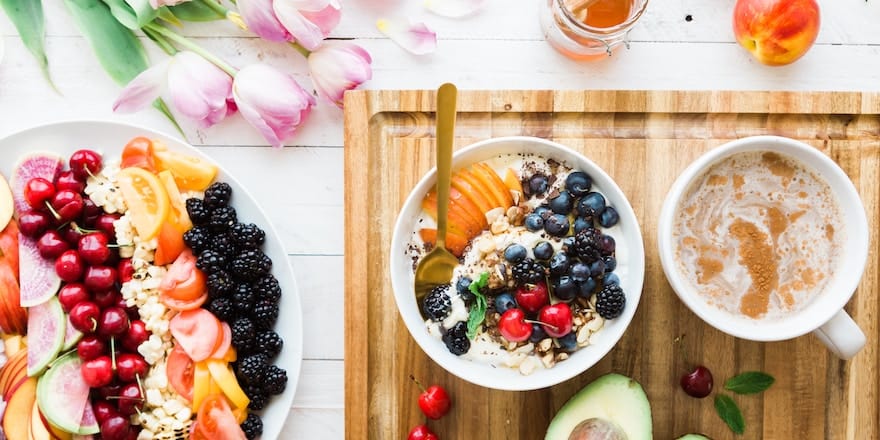
Fruits and vegetables are excellent sources of soluble and insoluble fibers, which already make them interesting for naturally cleansing the intestines.
But their nutritional composition doesn’t stop there. Rich in vitamins, these foods supply the body with numerous antioxidants, such as vitamin E, carotenoids, or vitamin C.
By neutralizing free radicals, they limit oxidative damage to the intestines that can cause discomfort and inflammatory phenomena.
They could also be useful for the balance of the microbiota, through their interaction with the microorganisms of the flora, according to this study.
4. Healthy plant-based fats
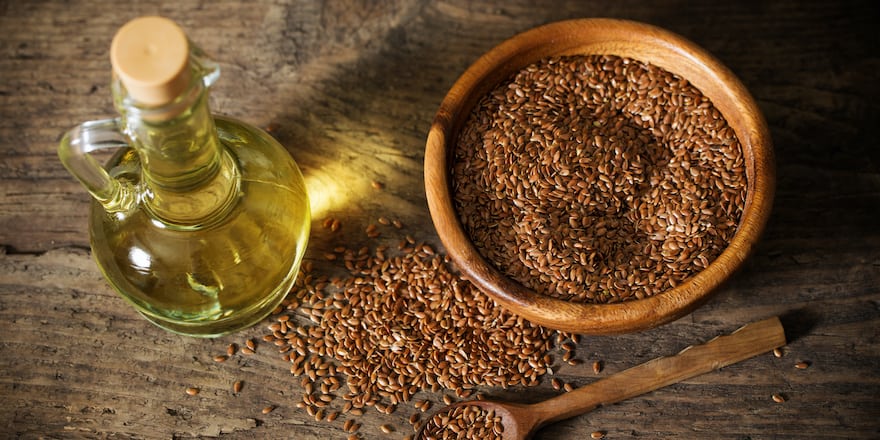
A generally balanced diet is essential to cleanse your intestines and have good digestion. The consumption of plant-based fats is part of this.
Studies have notably shown the benefits of omega-3 on immune capacity and gut flora balance. Regular consumption could help prevent discomfort and promote more harmonious digestion.
Regularly consume avocado, nuts, flaxseed oil, olive oil, or rapeseed oil to load up on omega-3 and 9, which are beneficial for intestinal health.
📚 Also read | How to choose your omega-3?
5. Ginger
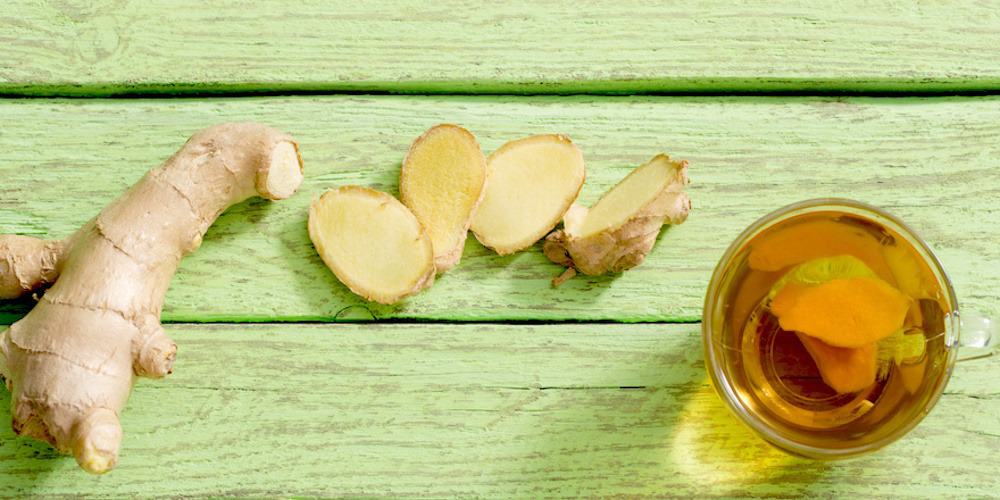
Among the foods often mentioned for gut cleansing, ginger stands out. Used for centuries, this root may have anti-inflammatory effects and soothe discomfort. It also contributes to stimulating digestion.
This is what this 2020 review concluded, which compiled the results of 109 randomized trials.
However, studies focusing on the benefits of ginger for gut cleansing and health are not always of good quality and further research is needed to confirm the root’s benefits.
6. Digestive Teas
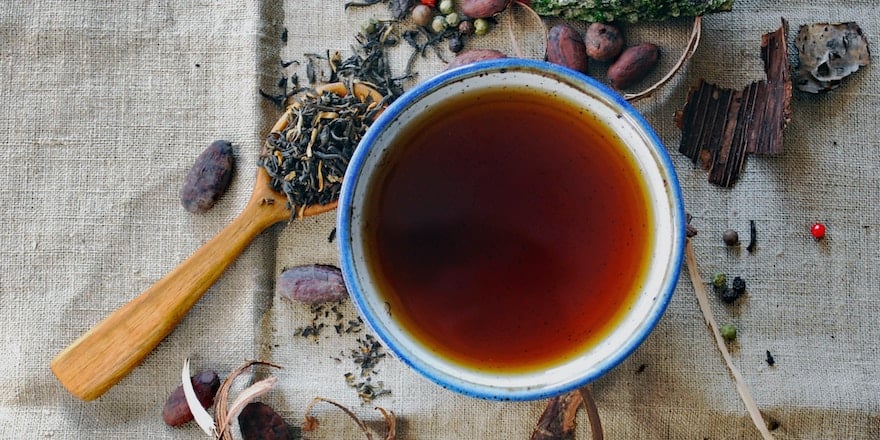
Among these traditional remedies, the use of digestive plants is a good natural solution for cleansing the intestines. I recommend consuming them as teas to enjoy all their benefits while promoting hydration.
Some stand out for their properties, as indicated by this scientific review:
- Peppermint
- Fennel
- Dandelion
- Artichoke
- Chamomile
Some studies show that artichoke may stimulate liver functions and facilitate the elimination of toxins, whereas peppermint is known for its antioxidant, antimicrobial, and anti-inflammatory effects, which are particularly useful for intestinal health.
Overall, it seems that the chemical compounds of the plants responsible for digestive benefits are bitter, aromatic, or spicy.
7. Physical Activity

Sedentary lifestyle is a risk factor for many diseases, but it can also have repercussions on digestion and efficient waste elimination.
We don’t immediately consider it, but engaging in physical activity has shown beneficial effects for gut cleansing on various levels.
Engaging in light-intensity sports helps activate blood circulation, keep the body alert, and promote the contraction of intestinal muscles, which is necessary for stool elimination.
Regular physical activity would also have a positive impact on the gut microbiota. This recent 2022 review shows that sports practice helps enhance microbial flora diversity, which directly impacts colon health and its ability to properly eliminate toxins.
Sources and Scientific Studies
- Nikunj Naliyadhara, Aviral Kumar, Shailendra Kumar Gangwar, 2023, Interplay of dietary antioxidants and gut microbiome in human health: What has been learnt thus far?
- Wegierska AE, Charitos IA, Topi S, 2022. The Connection Between Physical Exercise and Gut Microbiota: Implications for Competitive Sports Athletes.
- Fu Y, Wang Y, Gao H, 2021. Associations among Dietary Omega-3 Polyunsaturated Fatty Acids, the Gut Microbiota, and Intestinal Immunity.
- Anh NH, Kim SJ, Long NP, 2020. Ginger on Human Health: A Comprehensive Systematic Review of 109 Randomized Controlled Trials.
- Valussi M, 2019. Functional foods with digestion-enhancing properties.
- Ben Salem M, Affes H, Ksouda K, 2015. Pharmacological Studies of Artichoke Leaf Extract and Their Health Benefits.
- Mahendran, G., & Rahman, L. U, 2020. Ethnomedicinal, phytochemical and pharmacological updates on Peppermint (Mentha × piperita L.)-A review.



